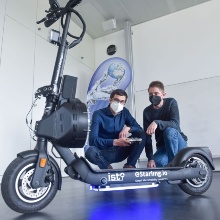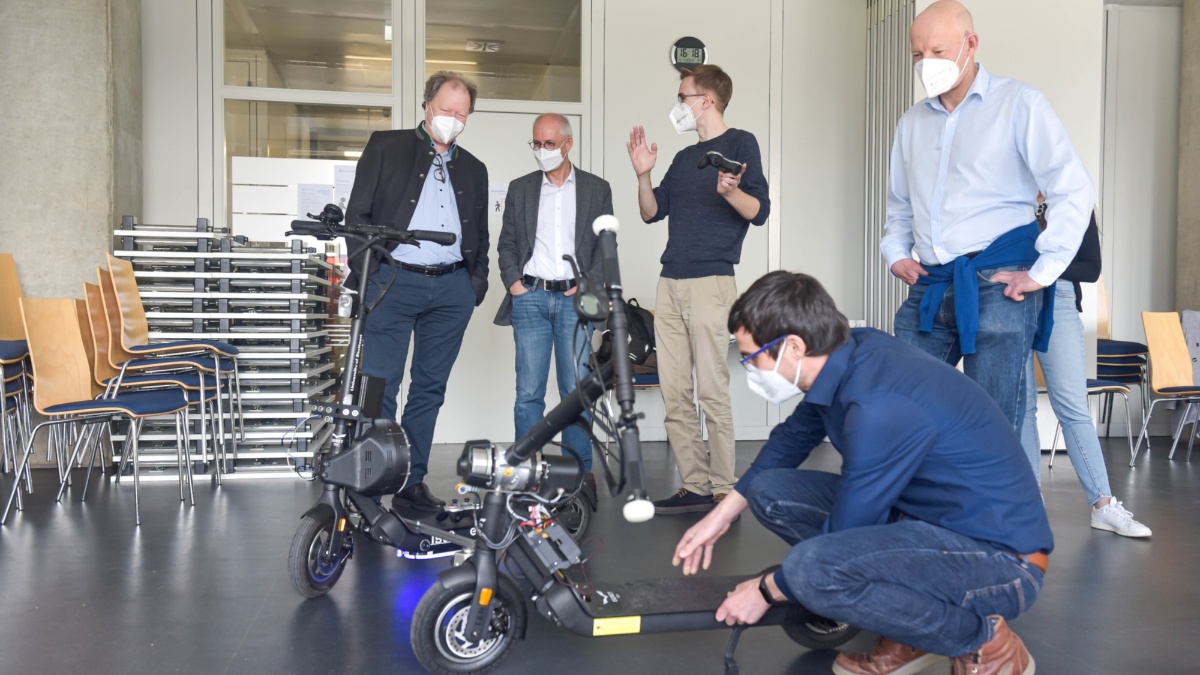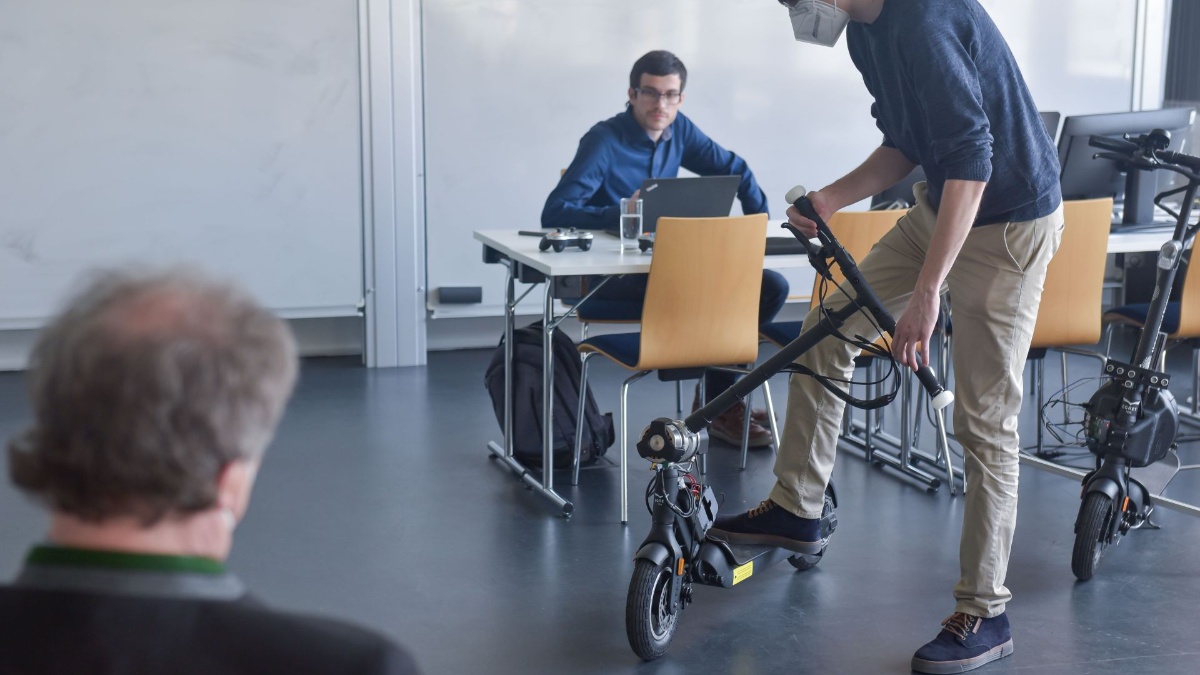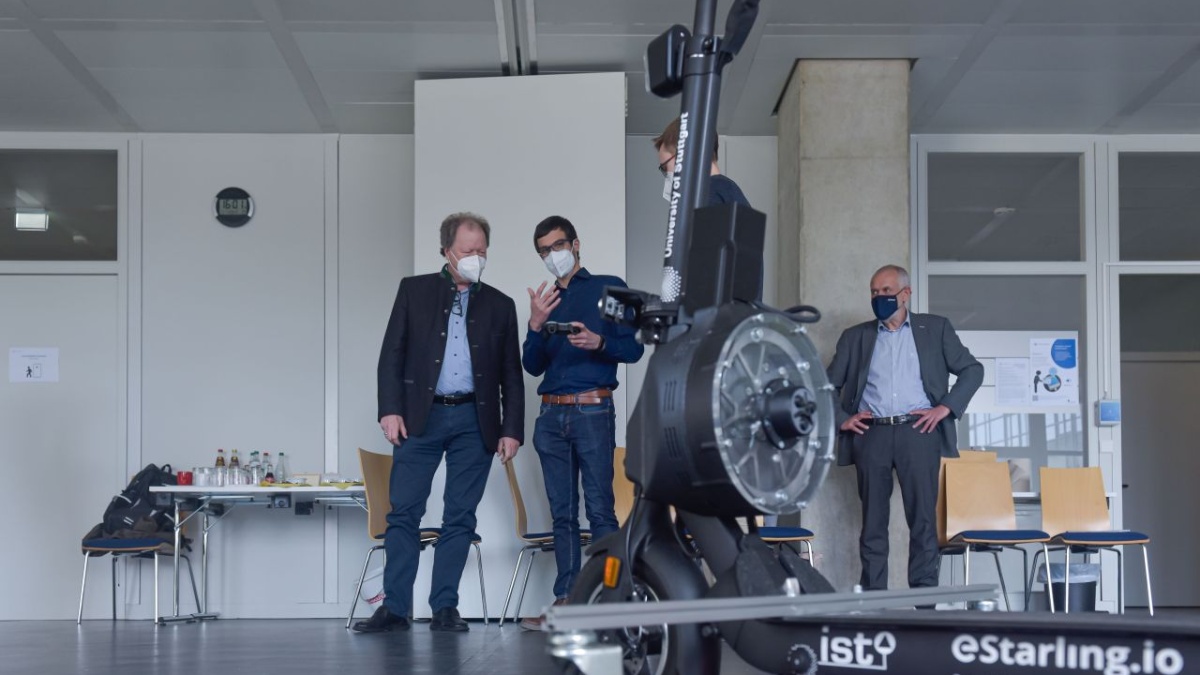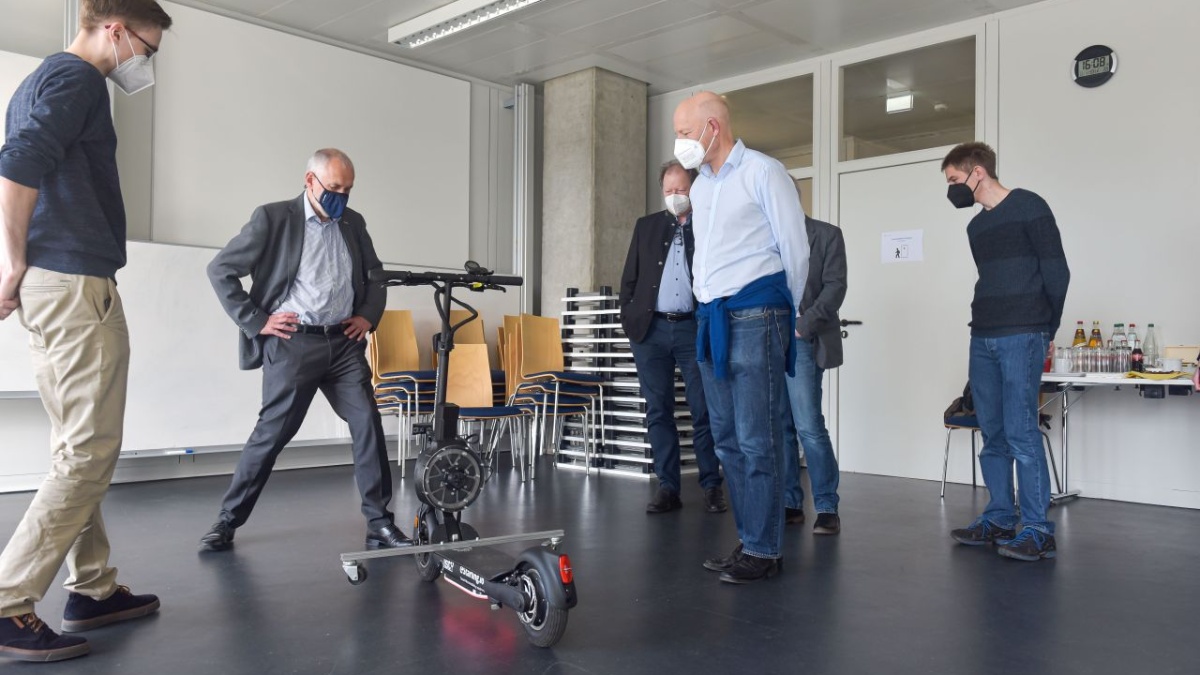E-scooters often block the sidewalk or lie scattered with discharged batteries in busy plazas. But the autonomous e-scooter being developed at the University of Stuttgart will not meet the same fate. That’s because it can balance itself using modern control technology and go on demand to wherever it is needed at the moment. In the meantime, Professor Frank Allgöwer, head of the Institute for Systems Theory and Automatic Control (IST) at the University of Stuttgart, has developed several prototypes together with his team of 5 PhD students and 17 undergrads.
During a live demonstration at the IST, Professor Wolfram Ressel, Rector of the University of Stuttgart, gained new insight into the current status of the e-scooter project. The current prototype curves through space, runs in circles and figure eights, and tilts in tight corners without tipping over. This sets the e-scooter apart from its predecessors. “Our current prototype moves much more dynamically than the previous ones,” says Allgöwer. It is still controlled by a remote control but now also uses ultrasonic waves in order to detect obstacles and stop in front of them. Even a hand quickly extended in front of the e-scooter is immediately detected by its sensor. Another prototype, the “Acrobot”, has a joint on the handlebars that allows the e-scooter to balance itself – similar to a person standing on one leg and spreading their arms out to stabilize themselves. This alternative balancing mechanism will enable the scooter to right itself after it falls over.
The e-scooter is a sub-project of MobiLab
The e-scooter is part of the MobiLab mobility concept at the University of Stuttgart. As part of the lighthouse project, Vaihingen campus is to become an emission-free research and innovation laboratory. The university aims to become carbon neutral by 2030. With various measures such as the car-free campus, the autonomous campus shuttle, and the autonomous e-scooter, the mobility-related release of CO2 is to be greatly reduced. The new developments are being tested on research roads.
According to Allgöwer, the autonomous e-scooter addresses the last mile on the campus as part of MobiLab. The e-scooters will transport students from the university S-Bahn station to their lecture halls in the morning or employees from their offices to the cafeteria at lunchtime.
In order to ensure that the e-scooters are always where they are needed, Allgöwer and his team plan to develop an app. Using the app, users will be able to see where an e-scooter is and summon it. The scooter will then slowly move to where the user is waiting and take them to their destination. As Allgöwer explains, the e-scooter will then move autonomously to where it is needed next. If the battery charge level drops, the e-scooter will move to the nearest inductive charging station and recharge there. Colleagues at the Institute for Electrical Energy Conversion (IEW) are responsible for developing these charging stations.
“What the proto-type can do so far may sound simple – but it’s highly complex and involved. There is a great deal of effort behind the research and development,” says Allgöwer. Nevertheless, he and his doctoral students as well as the numerous undergrads have already achieved a great deal. “Not least because my team has invested a lot of time and effort. For this, I am eternally grateful.” His team includes doctoral candidate Philipp Wenzelburger, who has been supporting the project for two and a half years. “I have been able to learn, research, and try out a lot on the e-scooter project. These skills will help me in my career in sensor development,” says Wenzelburger.
Award received for publication
In 2021, the research team received the Young Author Award from the International Federation of Automatic Control (IFAC) for their paper on autonomous e-scooters. The IFAC promotes the science and technology of automation and control and addresses the impact of control technology and automation on society. The prize is awarded annually to authors under the age of 30.
The research team is now aiming to improve the interaction of the individual functions. “The e-scooter must be able to navigate curves and recognize and avoid obstacles,” says Wenzelburger. A test field will also be built on the outdoor area of the Vaihingen campus in order to test the e-scooter under realistic conditions.


